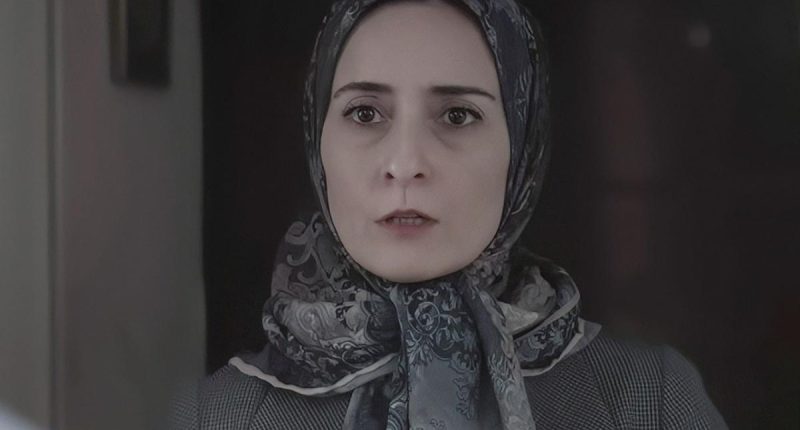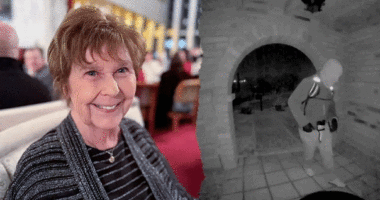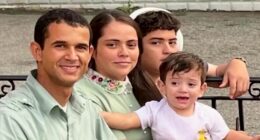Share this @internewscast.com
You won’t be able to take your eyes off The Seed of the Sacred Fig (now streaming on Hulu), an Iranian film hailed as one of the greatest of 2024. The film’s creation is nearly as dramatic as its narrative: The filmmaker, Mohammad Rasoulof, previously imprisoned by the Iranian government for his critical stance against the regime, clandestinely filmed Sacred Fig piece by piece. Upon learning about a looming eight-year prison sentence, Rasoulof fled to Germany with some members of the cast and crew, eventually showcasing the movie at the 2024 Cannes Film Festival. Meanwhile, actors Soheila Golestani and Missagh Zareh faced legal issues and remain unable to leave Iran. Distributed by NEON, the film garnered an Oscar nomination for Best International Feature, winning our admiration for its courageous stand against authoritarianism.
The Gist: Real-life events underscore the fictional tale in Sacred Fig: In 2022, Tehran resident Mahsa Amini violated hijab-wearing laws, was arrested, and died in police custody. The official claim was a heart attack, though evidence indicated she was brutally beaten. Her death ignited weeks of protests that turned violent, leading to many casualties.
Within this context, Iman (Zareh) receives a job promotion. He’s appointed as an investigator for criminal cases, a role that offers a pay raise, a larger home, and the potential to advance to judge. He’s given a pistol for self-defense, as the position involves the risk of retaliation. The bullets clink on the table before him. Is he trained to use the gun? That’s uncertain. Yet he carries it tucked in his pants, beneath his suit jacket, and places it in a bedside drawer at night. In his early days on the job, he is pressured (essentially commanded) to endorse death sentences without a semblance of due process. This deeply troubles him, as it would any person with a conscience. As arrests from the protests increase, he succumbs to pressure each time. Then he comes home late, almost in a stupor, and collapses into bed. Will he dare to question the system?
After a particularly brutal day, Iman undresses to shower and leaves his gun in a pile of laundry, which on one end is understandable, because heâs mentally exhausted, but on the other, is indefensible and careless. But his wife, Najmeh (Golestani), picks up his dirty clothes â as the woman of the house, this is one of her many duties â and puts the gun in the bedside drawer. Itâs also Najmehâs job to make sure their daughters toe the line of ârespectabilityâ due to their fatherâs position; theyâll wear hijabs properly in public, they wonât post photos of themselves on social media and they wonât go anywhere they shouldnât. Sana (Setareh Maleki) is in her teens and her older sister Rezvan (Mahsa Rostami) is a college student. They share a bedroom. But soon enough, thanks to their fatherâs new job, theyâll move to a place where theyâll have their own rooms.
Rezvan has a close friend named Sadaf (Niousha Akhshi). One moment, the three girls and Najmeh paint each otherâs nails â the polish will be washed off before Iman gets home â and pluck each otherâs eyebrows. The next moment, Najmeh uses the same tweezers to pluck buckshot out of Sadafâs face. She got caught up in the protests at her school. Najmeh cleans the girl up and covers half her face with bandages and sends her away, and Sadaf is soon arrested, her phone confiscated. Sadafâs safety is not Najmehâs concern, though. Imanâs job is too important. He cannot be affiliated with a protester. He works for the other side. He could get fired. (Or worse? One can only assume.) And then theyâd have to stay in this perfectly fine apartment with two bedrooms.
Sana and Rezvan are upset, and not just about their friend. Iman miraculously comes home in time for dinner one night, and as he eats with his family, a fissure grows. Itâs generational and ideological: The girls are sympathetic with the protestersâ cause â âDown with theocracy!â, go the chants on the street, and Sana and Rezvan note how social media videos of the protests donât at all align with the TV reports their mother watches. Iman and Najmeh are devout Muslims; he makes vague statements that the current regime has âroom for improvementâ but is devoted to opposing âthe enemy,â and that everyone is against their country. Much of dinner goes uneaten that evening. The next morning, he dresses for work and opens the bedside drawer and the gun is missing. And right about now, Chekhov would like a word.
What Movies Will It Remind You Of?: Iâm Still Here, about the trauma wrought upon a family living under authoritarian rule in 1970s Brazil, is the yin to Sacred Figâs yang â both are about the intersection of the political and the personal, although the former film depicts how a family manages to hold itself together, while the latter depicts a family being torn apart.
Performance Worth Watching: Golestani : The Seed of the Sacred Fig :: Fernanda Torres : Iâm Still Here. Maleki and Rostami are also extraordinary.
Memorable Dialogue: Rezvan side-eyes the TV news:
Rezvan: Itâs nothing but lies.
Najmeh: How do you know?
Rezvan. I live in this country. Iâve got eyes.
Sex and Skin: None.
Our Take: This familyâs story is the greater societal conflict in microcosm â Iman is the patriarchal ruler around whom all familial interests revolve. Najmeh enables this dynamic for the sake of tradition and, as eventually comes to light, out of fear. Sana and Rezvan are young, idealistic and open to upending old rules that restrict their freedom. One of the great truths about the human condition: You are beholden to the things you learn in your youth. Change is inevitable; sometimes itâs sudden, sometimes itâs drawn-out, but itâs always difficult.
Is revolution necessary in this household? I find myself speaking in metaphorical terms just as Rasoulof does with The Seed of the Sacred Fig, as the film subtly transitions from literal to literary, into parable territory. Iman doesnât shy away from draconian measures against his own wife and children in order to find the gun â he faces three years in prison if it doesnât turn up â especially as his paranoia grows in the wake of potential public exposure of his professional âaccomplishments.â Heâs caught in a tangle of religious and political zealotry that puts everything in his life at risk. Is this precarious situation his own fault? Yes. Is it societyâs fault? Also yes.
I risk diminishing Najmeh, Sana and Rezvan, who are the primary characters in this story, as I prod at the source of their problems. Golestani, Maleki and Rostami are brilliant in their naturalist, eventually slightly elevated performances, and form the beating heart of the narrative. Rasoulof clings to their point-of-view and sympathizes with them not with an inflated and righteous sense of feminism, but with basic assertions of individual liberty. The hypocrisy and cruelty he portrays is self-evident. The solutions are not, which the director communicates by building to an excruciatingly tense climax, dropping his characters into a near-labyrinth, chasing a MacGuffin thatâs also a symbol â the gun. Thereâs no good solution to this situation. But that doesnât mean itâs hopeless.
Our Call: The Seed of the Sacred Fig is an amazing film. You can sense the peril and passion in every frame. STREAM IT.
John Serba is a freelance writer and film critic based in Grand Rapids, Michigan.
(function(d, s, id) {
var js, fjs = d.getElementsByTagName(s)[0];
if (d.getElementById(id)) return;
js = d.createElement(s); js.id = id;
js.src = “//connect.facebook.net/en_US/sdk.js#xfbml=1&appId=823934954307605&version=v2.8”;
fjs.parentNode.insertBefore(js, fjs);
}(document, ‘script’, ‘facebook-jssdk’));
















